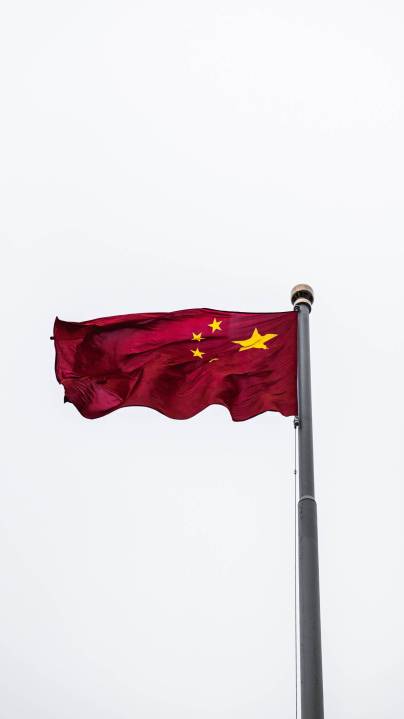In a further escalation of the technology clash between Washington and Beijing, ASML Holding NV, the leading provider of chipmaking equipment, is facing tighter restrictions on its ability to work with Chinese customers. The government of the Netherlands has stated their intention to further restrict the export of vital chipmaking tools, including the sale of equipment abroad. Under Dutch export control regulations, ASML will be unable to service, repair, or supply spare parts for controlled equipment without prior approval from the government. As of September 1st, 2018, ASML will be unable to ship certain so-called immersion deep ultraviolet lithography machines to China without a license due to new regulations published by the government in June.
When it comes to the semiconductor industry, ASML Holding is the top dog in Europe. It is a leading manufacturer of semiconductor manufacturing equipment. However, ASML’s equipment is unavailable to Chinese chipmakers. This is due to the fact that in October of last year, the United States instituted a ban on selling advanced chips and the equipment to make them to Chinese companies without a special license. The United States is pressuring his country and others to participate in a global effort to slow the development of China’s semiconductor industry. However, China is one of ASML’s most important markets.
China’s production capacity and capabilities will be severely impacted by these restrictions. As a leading provider of chipmaking equipment, ASML will make it difficult for Chinese companies to produce advanced chips. This is particularly true for the TWINSCAN NXT:2000i, NXT:2050i, and NXT:2100i. Immersion deep ultraviolet lithography (DUV) models like these allow for extremely precise and fine-grained chip manufacturing. The sale of ASML’s most advanced technology, extreme ultraviolet lithography, was already restricted from Chinese companies. Therefore, these are simply the following levels down.
According to reports, the Dutch government intends to publish new export restrictions on ASML’s chipmaking machines as soon as possible. The new regulations are meant to prevent the sale of three specific models of ASML’s machines to China, but neither China nor ASML are specifically named. It is hoped that other EU countries will use the laws as a model for similar legislation down the road. According to previous statements, these changes will “not have a material effect on our financial outlook” for 2023 or beyond, as stated by ASML.
During a press conference, Mao Ning, a spokesperson for China’s Ministry of Foreign Affairs, said, “We are firmly opposed to the Netherlands’ usage of administrative means to intervene and limit normal economic and trade exchanges between Chinese and Dutch companies.” For national and international security reasons, the Dutch government has announced plans to restrict the export of key chipmaking tools. It intended to impose new regulations on the export of machinery used in chip production.
Pressure to limit Chinese access to advanced equipment will only spur the country to work harder to create lithography machines that can compete with ASML’s, according to Peter Wennink, CEO of ASML. According to Wennink’s comments, if China is allowed to become technologically independent, it could have an effect on ASML’s business.
ASML has been using a wide range of business tactics to maintain its market dominance. It has spent a lot of money on R&D to boost the efficiency of its machinery. ASML has been diversifying its customer base beyond China, targeting countries like Taiwan, Japan, and South Korea.
Investment in R&D has increased as the Chinese government has been pushing for semiconductor industry self-sufficiency. The government has been making investments in areas like AI, 5G, and robotics in an effort to lessen the country’s reliance on imported technology. The global dominance of Western firms in the chip industry may be threatened by China’s plan for self-sufficiency in the semiconductor industry.
Western companies like Intel, Qualcomm, and Nvidia have dominated the global semiconductor market. Chinese chipmakers like Huawei’s HiSilicon have emerged as a threat, however. If China is able to develop its own technologies without relying on ASML, it could threaten Western companies’ hegemony in the global chip industry.
With China’s goal of semiconductor self-sufficiency, the global chip industry’s dominance by Western firms may be threatened in the future. Limiting ASML’s operations may help China develop its own technologies, which could hurt the company’s bottom line. ASML’s business strategies, such as investing in R&D and expanding its business to other regions, may help the company remain competitive.
First reported on Bloomberg
Q1: What restrictions is ASML facing in its ability to work with Chinese customers?
A1: The government of the Netherlands has announced its intention to further restrict the export of vital chipmaking tools, including equipment from ASML Holding NV, to Chinese customers. Under Dutch export control regulations, ASML will require prior approval from the government to service, repair, or supply spare parts for controlled equipment. Certain immersion deep ultraviolet lithography machines, crucial for advanced chip manufacturing, will also require a license to be shipped to China.
Q2: Why is ASML’s equipment unavailable to Chinese chipmakers?
A2: The United States instituted a ban in October of the previous year, prohibiting the sale of advanced chips and chipmaking equipment to Chinese companies without a special license. This ban is part of the U.S.’s efforts to impede the development of China’s semiconductor industry, and China is one of ASML’s key markets.
Q3: How will the restrictions impact China’s production capacity and capabilities in the semiconductor industry?
A3: The restrictions on ASML’s chipmaking equipment will make it difficult for Chinese companies to produce advanced chips, particularly models like the TWINSCAN NXT:2000i, NXT:2050i, and NXT:2100i. These restrictions will have a significant impact on China’s chip production capacity and capabilities, limiting its ability to compete in the global market.
Q4: What are the new export restrictions that the Dutch government intends to publish on ASML’s machines?
A4: The Dutch government plans to publish new export restrictions that specifically target three models of ASML’s chipmaking machines. The regulations are intended to prevent the sale of these machines to China, although neither China nor ASML are explicitly named. It is hoped that other EU countries will adopt similar legislation based on these laws.
Q5: How does ASML’s CEO view the pressure to limit Chinese access to advanced equipment?
A5: ASML’s CEO, Peter Wennink, believes that the pressure to limit Chinese access to advanced equipment will drive China to work harder to develop its own lithography machines that can compete with ASML’s technology. The goal of China’s technological independence in the semiconductor industry could potentially impact ASML’s business.
Q6: How has ASML been adapting to maintain its market dominance?
A6: ASML has been investing heavily in research and development (R&D) to enhance the efficiency of its chipmaking machinery. The company has also been diversifying its customer base beyond China by targeting countries like Taiwan, Japan, and South Korea. These strategies aim to ensure ASML’s market dominance and mitigate potential risks.
Q7: How is the Chinese government promoting semiconductor industry self-sufficiency?
A7: The Chinese government has been investing in areas such as artificial intelligence (AI), 5G, and robotics to reduce its reliance on imported technology and achieve self-sufficiency in the semiconductor industry. These investments pose a challenge to the dominance of Western firms in the global chip industry.
Q8: How might China’s pursuit of semiconductor self-sufficiency impact Western firms in the chip industry?
A8: If China successfully develops its own technologies without relying on companies like ASML, it could challenge the dominance of Western firms such as Intel, Qualcomm, and Nvidia in the global chip industry. China’s goal of achieving self-sufficiency in semiconductors poses a potential threat to Western companies’ market share and influence in the industry.
Featured Image Credit: Unsplash


















